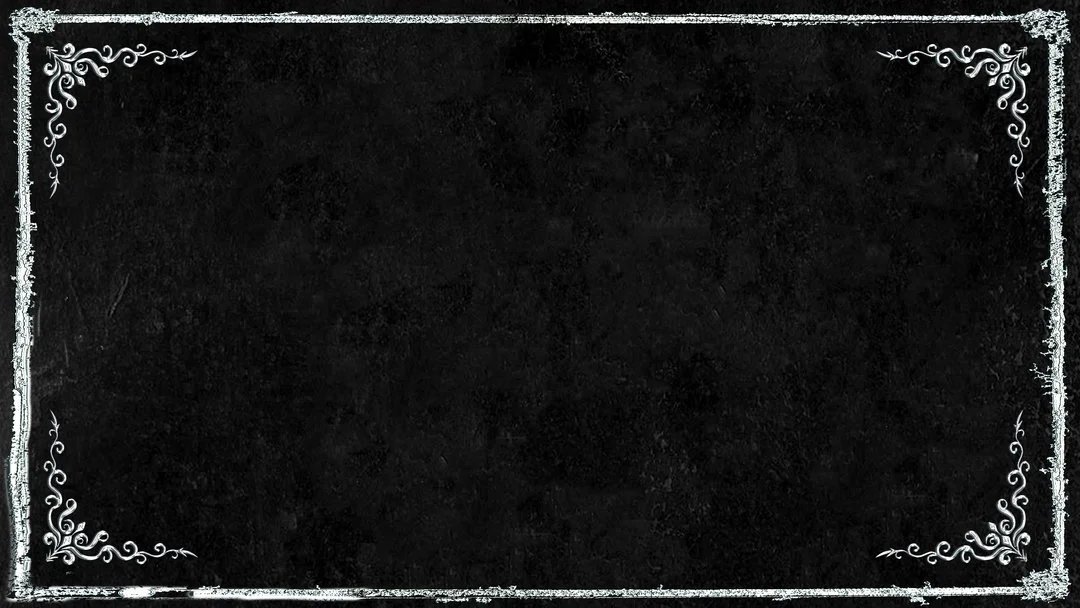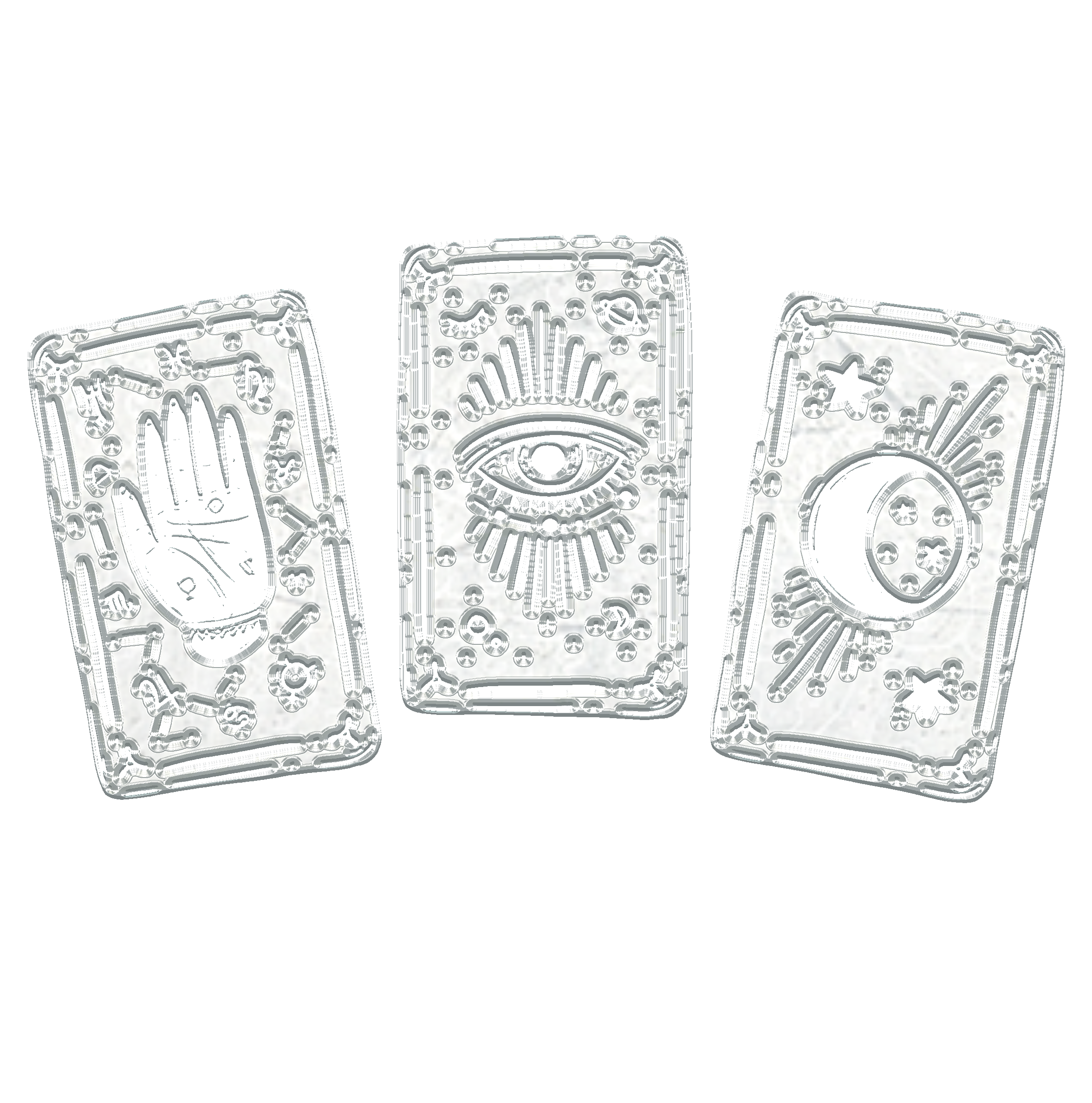
Every face we encounter carries with it a secret music.
One only needs to know how to listen.
In the beating heart of Evengard, it is not the places that define the story, but the souls who inhabit them. This chapter is dedicated to them. More than just a simple list, what follows is a narrative encyclopedia, a collection of existences told through fragments, memories, dreams, and sometimes visions.
Each character in Evengard reflects a deep tension: between light and darkness, between fate and will, between past and present. No one is merely what they appear to be. Each carries within them a fracture, a knot, a melody to decipher.
Here you will find personal stories, mysterious genealogies, psychological traits, physical details, arcane gifts, and invisible wounds. Some names will already be familiar to you from the main narrative; others, perhaps only hinted at or glimpsed, will finally be revealed.

For years, he was haunted by a single question: what is art if it cannot express everything? Singing and painting alone weren’t enough, so he combined them, creating the Musical Canvas — a work both seen and heard, a painting that sang, a melody that changed color.
At first, no one understood. Guilds mocked him, nobles ignored him. Undeterred, El Pint performed in streets, schools, and taverns, leaving behind profound, emotional silences. His art transformed those who witnessed it, revealing hidden beauty and forgotten darkness.
Eventually, castles summoned him, kings desired his enchantment, crowds knelt—but El Pint remained unmoved. He realized his gift was not mere art, but truth.
After years of wandering, he performed for the last time, leaving his final work hidden in nature, where it is said the canvas still sings.
A fortune teller once foretold a future of revelation, not applause. Inspired, El Pint painted no longer to be understood, but to leave marks on the soul.
El Pint,
The Immortal Artist

Princess Charlotte of Camelot lived in a palace of luxury, where every desire was granted before she even voiced it. Yet behind her beauty and privilege lay loneliness, for neither nobles nor servants loved her. Her parents, obsessed with molding her into a flawless ruler, forced her into disciplines of science and art, but dismissed the only thing that truly brought her joy: music.
As she withered under this weight, her only solace was a birchwood music box gifted by her nursemaid. One night, broken by despair, Charlotte wished not to be queen but to live freely through song. The music box answered, glowing with mysterious light, and offered her a new destiny—freedom, at the cost of her past. Without hesitation, Charlotte agreed.
Transformed into a golden-breasted nightingale, she flew beyond Camelot’s walls and into the world of common people. There, her song enchanted all who heard it—bringing comfort, stirring dreams, and awakening forgotten feelings. Though she no longer remembered her royal life, her soul carried the truth of her longing.
Thus the princess who had never been heard was finally able to sing, and through her song she found the freedom she had always desired.
Charlotte,
The Irritating Nightingale

SAMUEL, THE WIZARD
OF THE FOREST
Living in the forest, Samuel began to study the grimoires of a legendary sorcerer, greater even than the famed Lufrak Lonzo. He learned from the earth, the plants, and the silence of nature, slowly transforming into a mage himself. Yet he still lacked a focus for his power. One day, Vorran, nearing the end of his life, told Samuel to take a piece of his bark and craft it into a staff. Though sorrowful, Samuel accepted, carrying with him not only magic but the love and wisdom of the forest.
When he returned to Camelot, he found the kingdom ruined by corruption. But with Vorran’s staff in hand and magic flowing through him, Samuel drove out the oppressors, healed the suffering, and even made the streets bloom again. Unlike kings or judges, he sought no throne and passed no verdicts. He simply protected. And each time he performed an act of goodness, a nightingale would land on his staff and sing, as if to remind him that hope and beauty still endured.
Samuel was once an idealistic young scholar of law in Camelot. Gifted with words and a strong sense of justice, he defended the poor and opposed the corruption of the powerful. Yet he despised magic, ever since his wife had died in a fire caused by uncontrolled sorcery. To him, magic was nothing but a dangerous lie.
As the years passed, Camelot itself fell into decay. Justice was bought and sold, the weak were abandoned, and Samuel, disillusioned and broken, left the city with only his memories and a worn cloak. His wandering brought him into an ancient forest where he encountered Vorran, a great, sentient tree whose roots reached into the depths of time. Listening to Samuel’s sorrow, Vorran welcomed him and showed him that not all magic destroys—some magic heals and restores.

Lufrak Lonzo,
Long ago, in the realms of Evengard, there lived a man named Lufrak Lonzo. He was not a warrior nor a scholar, but a lively soul whose charm, curiosity, and love of drink made him famous across three kingdoms. Wherever he went, taverns rang with his laughter, his endless toasts, and his unmatched knowledge of wines and brews.
Yet behind this lighthearted exterior, fate had placed him close to great power. Lufrak served as the personal attendant of Evengard’s most formidable mage, a master of secrets both feared and revered. His duties were simple—cleaning alembics, sorting ancient tomes, and gathering rare herbs—but his restless curiosity drew him always to the shelves lined with vials and potions that shimmered like hidden treasures.
One night, emboldened by wine and wonder, Lufrak dared to mix his own creation: enchanted liqueur, lunar dust, and the strange sap of time itself. He drank without hesitation—and in an instant, his body surged with unimaginable force. Magic erupted through him, wild and divine. When his master discovered what had happened, his stern face twisted with dread. The potion had been destined for the prophesied Chosen One, and by drinking it, Lufrak had seemingly doomed the world.
But Lufrak had no will for destruction. Instead, afraid yet determined, he fled into the untamed lands of Evengard. There, he embraced the chaotic energy within him, teaching himself to bend it, dance with it, and shape it as though it were music only he could hear.
Years passed, then centuries, but Lufrak never aged. The potion had granted him immortality, and his story grew into legend, whispered around hearths and taverns like a song that never fades. In time, he came to realize what even his master had failed to see: it had not been an accident at all. Lufrak Lonzo had always been the Chosen One.
The Legend of Tales

Rick was once a gentle and respected professor at the Varnin Academy in Gherta. He taught arts, history, and arcane sciences with patience and joy, his warm smile beloved by students and villagers alike. In his spare time, he collected relics—scrolls, statues, ancient coins—and often visited The Still Time, an antique shop known for its curiosities.
After months away, Rick returned to find the shop strangely altered: its sign replaced, its air heavy and cold. The new shopkeeper, tall with unnaturally long fingers, greeted him with a sharp smile. On a dusty shelf Rick noticed a silver medallion, set with a red gem that pulsed like a heart. Drawn to it, he purchased the relic and wore it that very night.
Sleep carried him into a nightmare. In his classroom, children awaited his lesson with laughter—but their eyes soon turned crimson, then black, and they shrieked in voices not their own while tearing one another apart. In desperation, Rick tried to stop them, but in the chaos he killed one with his own hands. He awoke screaming, drenched in sweat, clinging to the hope it had been only a dream.
The next morning, the truth revealed itself: the academy stood deserted, sealed with a sign that read, “Closed. A teacher has murdered the children. May the evil never return.” Rick fell to his knees—when the medallion spoke. “It has already happened. I chose you. You are the Reaper of Innocence. Now, serve me.”
From that day, Rick was no longer the man he had been. His skin turned gray, his eyes hollow, his presence a shadow. He wandered from village to village, luring children with kind words, and they vanished—leaving behind only bloodstained books, broken toys, and tiny shoes.
Legends whisper that he still lingers in forests and abandoned schools, the medallion’s gem pulsing with hunger, waiting for the innocent to answer his call.
RICK, THE CHILD-EATER TEACHER

Friedrich,
The Count Duke
Friedrich was the King's right hand: he managed the kingdom of Camelot, oversaw the treasury, and decided how to invest the crown’s gold for the good of all. He was precise, elegant, and spoke little—but with wisdom.
Then darkness fell upon the realm. Shadowy creatures seized power, and the King was overthrown. With him, Friedrich lost everything—his title, his home, his purpose.
For months, he wandered among the common folk, helping however he could: organizing markets, protecting villages from the unjust taxes imposed by the invaders. The people came to love him.
So when the time came to rise and reclaim the kingdom, it was the farmers, merchants, and craftsmen who stood by his side. With the strength of the people, Friedrich took back the palace. In the end, he was no longer just the Count Duke.
He became the symbol of a fairer kingdom.

Drugo, The Ancient Viking
Drugo was a man shaped by time and battle. Once, he had been a mighty Viking warrior, feared across lands and immortalized in war songs. But the years had carved wrinkles into his face and scars into his body, each one a reminder of the countless battles he had fought. Despite the weight of age, his strength and determination never waned, and so he kept moving, always wandering.
His journeys carried him from the frozen cliffs of the North to the blazing jungles of the South. No land was too far, no creature too dangerous. He faced and defeated monstrous beings—basilisks, dragons, even an ancient stone guardian who spoke with the wind. Yet, despite his victories, every city, every tavern, and every face remained fleeting, a passing moment in the emptiness that dwelled inside him.
Drugo no longer sought glory, riches, or revenge. His life had been a barren field of loss—family, friends, and love taken from him since childhood. Battle had been his only purpose, and once he grew strong enough to fear nothing, he found himself aimless, walking forward without knowing why. One day, his wandering brought him to a quiet village on the shores of the Celestial Lake. There he encountered something unfamiliar: peace. The villagers lived simply—children laughed, elders told stories, and no one feared or challenged him. To them, he was not a warrior or a legend, but simply a man.
It was in this village that an old healer confronted him with a question that unsettled his soul: “Do you wander to forget the past, or to avoid facing it?” Her words lingered with him for days and nights until he realized the truth—he had not been searching for something new, but running from a pain that could never be erased.
For the first time, Drugo stopped. He buried his axe in the earth, built a home with his own hands, and devoted himself to teaching the young not how to kill, but how to protect. He became a storyteller, a musician, a mentor. And in the laughter of the children and the warmth of shared stories, he discovered what had eluded him his entire life: not escape, but healing, belonging, and joy.

Lavinia, a kind woman who adored animals—especially cats—founded a shelter for abandoned creatures in Kalternif. One night, a sudden fire destroyed everything, scattering the animals.
Suspected of causing it was Aries, a cruel witch, though nothing was proven. Desperate, Lavinia went to her and begged for help. Aries set a cruel bargain: if Lavinia could find all her cats in seven days, the witch would restore them with magic. If she failed, Lavinia would remain a cat forever.
Accepting the challenge, Lavinia was transformed into a flame-colored feline. She searched tirelessly, guided by her deep knowledge of each cat. By the seventh day, she had reunited nearly all of them. But Aries revealed that one had died in the fire. Instead of despairing, Lavinia chose to stay as a cat, vowing to guard her animals forever.
Since then, the people of Kalternif say a mysterious cat appears near those who adopt strays, watching over them as if carrying on Lavinia’s eternal promise.
Lavinia, The Cat Lady

Gheos, a painter from Camelot, poured his soul into his art, but people never truly understood him—they admired his work for prestige, not meaning. Determined, he prepared a final exhibition for the kingdom’s elite. That night, the famed mage Lufrak Lonzo, drunk on a reckless mix of potions and wine, accidentally cast a chaotic spell. Gheos vanished—replaced by a golden-feathered rooster.
Mocked and forgotten, Gheos discovered a new way to create: scratching patterns in the earth, arranging feathers, painting with his wings. His strange art captivated children, animals, and elders alike. At last, people listened. When Lufrak offered to undo the curse, Gheos refused, saying he had finally been seen for his truth.
Thus, Gheos remained the Enchanted Rooster, a symbol of creativity without limits. Each year, Camelot honors him with the Festival of the Feathered Artist, celebrating art made with sincerity and love.
GHEOS, THE FAIRY COCK

In the blossom-filled village of Karamoto lived the Ribbon Lady, a girl whose golden fingers turned ribbons into gifts of comfort and joy. She sewed for children, mothers, and warriors alike, quietly weaving the spirit of her community. Yet her parents dismissed her craft as useless, urging her toward more “serious” paths. Saddened, she set aside her art, and the ribbons gathered dust.
Then came the fire. Lightning struck the forest, flames spread, and the village bridge began to collapse. In that moment of peril, she seized her rolls of fabric and wove a ribbon vast and unbreakable, stretching it across the bridge and binding it fast. The people crossed, the village endured, and her parents finally saw what they had once denied: that even the simplest dreams, when carried with courage, can hold a world together.
Ribbon Lady,
The Pace of Life

Deep within Vinewood lived Korshak, a faun marked by a broken horn and a destiny apart. Shunned by his kin, he found solace in the forest, where animals trusted him and plants flourished under his care. He spoke not with words, but through the voice of his hurdy-gurdy, whose melodies wove with birdsong. Skilled in alchemy, he crafted potions that healed wounds, revived soil, and restored life. To the forest, he was both guardian and healer, its chosen child.
But a plague came: the Northern Mushrooms, a creeping corruption with will of its own. Its spores poisoned air and soil alike, stealing life from flowers and creatures. Korshak fought with remedies, rituals, and songs, yet the disease consumed more than bodies—it reached into souls. Soon, it reached him.
His veins darkened, his form twisted, his hurdy-gurdy fused to his spine. His potions burned instead of healing, his music turned to cries of anguish. Memories and compassion slipped away, leaving only rage, sharpened teeth, and ember-red eyes. What had once been a guardian became the lord of a nightmare.
The forest, once radiant, grew dark and suffocating, its paths devouring all who entered. At last, driven by the bitterness of exile, Korshak turned on the fauns who had cast him out, destroying their village in a storm of vengeance.
Thus ended the birth of the monster—not by choice, but by abandonment. And Vinewood still whispers his tale: of the faun who sang with the birds, until silence and sorrow made him the forest’s curse.
KORSHAK, THE ALCHEMIST

Crystal, a wary girl from a hidden village of Camelot, trusted no one. Morgan, a black cat marked by past cruelty, lived the same way. One autumn night, Crystal saved Morgan from a wolf, and from then on, they shared their lives in quiet companionship. Their silence became a language of comfort and trust.
But fear and doubt led to a sudden quarrel, and they parted ways. A year later, fate reunited them under the moonlight—Crystal with a kind young man, Morgan with three kittens. In a single glance, they recognized what their bond had given them: the courage to love again. They didn’t speak or embrace, but their silent farewell carried gratitude, affection, and peace.
CRYSTAL AND MORGAN

Since childhood, she was taught that every creature has a path already written, carved like invisible scars on the soul. The cards — ancient, mysterious, inherited from a grandmother who spoke little but saw much — became her game, her obsession, and eventually her craft.
She has no documented past, no heroic deeds or monstrous actions. She became famous only because she always told the truth. Every time she shuffled her cards and read someone's fate, the words she spoke came true. Predictably. Unfailingly.
But the truth comes at a cost. And over time, the cards — or perhaps what dwells within them — began to consume her. Not physically: her face is still young, unmoving, sculpted like wax.
It is her presence that has changed, become heavy, poisonous. Her readings are no longer simple predictions: they are acts of power. Every truth she reveals, every destiny she unveils, carries with it an unspoken price. Those who sit at her table pay in silver coins... but also with something only she knows: health, love, luck. Something always leaves, and no one can tell if it is fate that takes it — or if it is her.
For this reason, Daria is feared. No one seeks her out for curiosity or vanity. Those who come to her do so only in cases of life or death. And even then, they wonder if it’s worth knowing their fate, knowing that the price will be higher than they are willing to pay.
DARIA, THE FORTUNE TELLER

In the misty nights of Camelot, Edward, a centuries-old vampire, wanders restlessly. Unlike the myths, he cannot turn into a bat or be repelled by garlic—only sunlight and silver scar him. Immortal and unable to sleep, he suffers an endless existence without rest. Blood sustains him but brings no joy, and his attempts with drugs, poisons, and spells all fail to grant him slumber.
A wandering mage once told him he dreams of nothing because he has nothing left to lose. Yet Edward longs not for eternity, but for a single night of sleep.
One evening, he meets a half-elf healer who listens to his torment and, instead of fearing him, invites him to “dream together.” For the first time, Edward feels a fragile peace—not sleep, but something close.
Now, as he roams Camelot, he still feeds, but also seeks out broken souls to share moments of quiet with. He learns that rest is not only closing one’s eyes—it can also be being understood, and no longer being alone.
EDWARD, THE SLEEPY VAMPIRE

In Gherta’s Muddy Land, the highlight of village life was the weekly Pig Race. Farmers tested their pigs’ speed through mud and obstacles, and glory awaited the winners. Four—nicknamed “Fourth” for always coming last—entered with his slow, round pig, Clumsy.
One night, Four wished on a shooting star for a pig so fast it could fly. The next day, Clumsy stunned the crowd by winning with impossible speed. But instead of celebrating, Four locked him away in fear of losing him. That night, Clumsy sprouted wings and flew into the sky, never to return.
Since then, villagers whisper of a pink shape racing across the moonlit heavens, while Four, forever searching, became known as “the one who chased after pigs”—a man chasing the dream he failed to hold.
FOURTH, THE WHO RUNS AFTER PIGS

In Karamoto, a city of bridges and flying lanterns, lived Hikari—“light”—a girl of kindness and hope. She healed, helped, and gave freely, though the townspeople mocked her as useless. Yet when a dark mist rose from the river and an ancient curse threatened the city, only Hikari heard the call of prophecy.
She climbed to the forgotten temple on Mount Okaru, knelt before the jade dragon, and asked not for herself but for her city’s light to endure. The dragon awakened, declaring that what mattered was not identity but the choice to remain open-hearted.
Transformed into a living embodiment of hope, Hikari returned, dissolving shadows with her voice and healing hearts with her presence. The city was saved, though she sought no recognition. And every year, when lanterns rise again, the first golden one is said to be Hikari’s—reminding all that true worth lies in what we choose to give, even unseen.

















